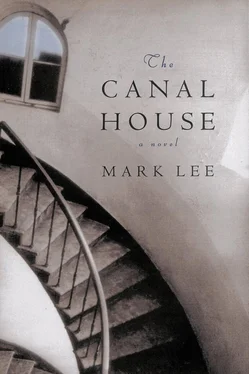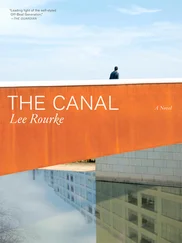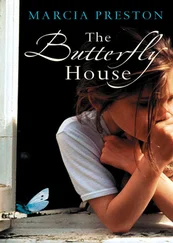Vickery picked up another cookie and shoved it in his mouth. The room was as hot and airless as a storage container. Sweat trickled down my neck, but Daniel looked comfortable.
“I do love chocolate-dipped digestive biscuits. They’re one of my few remaining pleasures, along with codeine pills and porno tapes.” Vickery laughed again. “You know I can’t cry anymore? Something’s wrong with my tear ducts. When I go outside I have to put drops in my eyes.”
“So how do we contact Okello?”
“It’s not possible. Several journalists have flown up to Kidepo park, but no one’s crazy enough to go out into the bush. This is a lost cause, Daniel. Waste of time and money.”
I saw myself returning to London without any photographs. “But we’re here,” I said. “We’ve got to do something.”
Vickery smiled as if a trained dog had just jumped for a ball. “There’s a backup story at a refugee camp near the game park. Not as sexy as hostages and severed hands, but someone might run it. I assume you’ve heard of Richard Seaton?”
Daniel and I both nodded. Seaton was the Englishman who owned the Riverside Bank. He had started out installing ATM machines on street corners, then took control of several regional building societies. There was a great deal of outcry when Seaton began sacking little old lady tellers, but he countered with an inspired ad campaign: “I Bought My Home with Richard.” You’d see some real-life family in their new house purchased with a loan from the Riverside Bank and Richard would be there, digging up the garden or kicking a soccer ball around like a favorite uncle. There was always one bit at the end where someone would give Richard a baby with a soiled diaper or offer him a towel to dry the dishes. Seaton would raise his eyebrows slightly—he was, of course, a very wealthy man—but then he’d smile, because he truly was part of your family. The ads became so popular that Seaton gave speeches during the last election.
“Mr. Seaton is making a transition from capitalistic exploiter to world philanthropist,” Vickery explained. “He’s started his own relief organization called Hand-to-Hand. Catchy name, don’t you think? He’s sponsoring a refugee camp near the border for the Sudanese forced out of their country by the civil war. His girlfriend, Dr. Julia Cadell, is running the operation. I’ve heard that she’s damn good looking, but she might be the real thing. She’s also worked in Bosnia and Sierra Leone.”
Daniel shook his head. “I’m not interested in relief work.”
“Seaton is actually going to be at the camp for the next few days. I got a fax from his London PR firm giving me his schedule. It’s an easy story, Daniel. Write your own headline. BRITISH BILLIONAIRE FEEDS THE HUNGRY or, for the tabloids, DICKY DOES GOOD. Nicky can take a photo of the Great Man looking concerned as he holds a shriveled black baby in his arms.”
Daniel glanced at me. “Nicky hates celebrities, and I hate articles about famine relief. It’s always the same article.”
“Emphasize the pain and tears. People in America and Britain always feel better about themselves when they can read how miserable everyone else is.”
“I’m going to find Samuel Okello.”
“Be my guest. If I were you, I’d fly to Kidepo park and start looking for people who’ve lost their right hands.”
We finished our tea and left a few minutes later as Vickery began dialing his stringer in Zambia. It felt good to escape from that airless room. Daniel said he wanted a drink and we took a taxi down to the Day and Night Bar on Latema Road.
True to its name, Day and Night was open twenty-four hours a day. I’d heard rumors that the front door hadn’t been closed in thirty years. Because of fights, the bar was surrounded by a wire cage. Two enormous bouncers strutted around with clubs thrust in their belts. The whole place smelled like spilled beer and bad plumbing, but there were friendly whores, dancing drunks, and a jukebox blasting out love songs in Swahili.
We pushed our money through a slot in the cage, got two bottles of White Cap, and retreated to the back room. Daniel gave one of the bouncers a few shillings, and the man told the working girls and hustlers that he’d knock out their teeth if they didn’t leave us alone. For a few minutes we just sat quietly at our table and let the energy flow around us. There was a Somali girl there, probably about fifteen years old, with dark skin and seashells knotted to each braid of her hair. I figured that she probably had AIDS and was going to die in a few years, but that evening she was full of life and didn’t care. Clutching a bottle of changaa —the local bootleg liquor—she danced around the tables, and the seashells clicked together as she moved her hips. She was a good photograph, but I didn’t want to play the tourist and pull out my camera.
“Matt had a Lebanese girlfriend when I first met him,” Daniel said. “It looked like they were going to get married.”
“I guess he’s changed.”
Daniel drew an invisible pattern on the table with his forefinger. “I’m not going to end up like that, Nicky.”
“Everybody wants to get off the train at the right moment, but for some reason we stay on too long.”
I finished my beer and went over to the cage to get two more bottles. Some drunks started fighting, but I managed to dodge them without spilling anything. Daniel looked a little more confident when I returned to our table.
“I’ve gotten enough background today,” he said. “Tomorrow we’ll fly to Uganda.”
“Have you figured out what we’re going to do if we actually find Samuel Okello? I don’t want to get killed.”
“Don’t worry, Nicky. Everything’s negotiable. You know that.”
I heard the soft thud of a club landing on someone’s back. A woman shouted in her tribal language and a bottle hit the wall. Both of us turned to watch as the bouncers hunched like rugby players and pushed three people out the door.
WE WENT BACK to the airport the next morning and flew to Uganda. Daniel sat in an aisle seat, checking a list of names in his leather notebook. I gazed out the window and watched as the yellowish brown colors of the Kenyan savanna disappeared and were replaced by a tropical landscape. The airplane’s shadow glided across the earth, and we passed over the northern edge of Lake Victoria. There were little whitecaps on the waves and I saw two fishermen sitting in a narrow boat. The plane banked to the right, landed at Entebbe airport, and taxied to the small terminal.
One of Daniel’s lunchtime companions at the Stampa Estera had given him the name of a local driver used by journalists. A big man wearing a satiny blue shirt was waiting for us on the tarmac when we got off the plane. He deftly separated us from a group of German tourists, then smiled and shook our hands.
“Good morning, gentlemen. I’m Winston Kanyara. Please, come with me.”
Winston knew every police officer and customs official at the airport. He told jokes in English and three tribal languages, handed out free cigarettes and a few small bribes. Five minutes later, we were out of the terminal and sliding into the back of Winston’s ancient Mercedes-Benz. “Once owned by a general,” he explained. More cigarettes were distributed to a trio of young soldiers carrying assault rifles and then we glided away from the curb.
The dashboard had been turned into an altar with an ivory cross and a plastic statue of a black Virgin Mary. Instead of the Christ child, a tiny lightbulb burned in her arms. Tropical air flowed in through the open windows as we traveled past small farms and an occasional coffee plantation. Wild orchids were growing in the road ditch and there were stick-and-wattle huts with rusty sheet-metal roofs the color of dry blood. Every mile or so we encountered an old woman or a child sitting on the roadside with something for sale—a bunch of plantains or a pile of yams, two AA batteries or a single bottle of beer.
Читать дальше












